At the beginning of each year and after each course we send a survey to our members who participated in our training courses. Our goal is to find out if what the participants learn in these courses is useful for their daily operations. We use this feedback to adjust our courses as much as possible to our members' learning needs. Please find below the results of the yearly 2014 survey.
- IPv6 course
- LIR course
- RIPE Database course
- Routing Security course
IPv6 Course
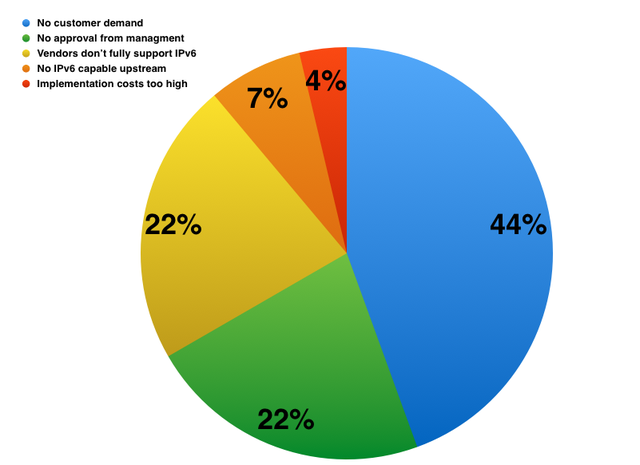
- IPv6 addressing plan
- IPv6 basics
- How to get an IPv6 allocation
The interaction between participants in the RIPE NCC courses is always a positive factor that the participants mention. In the case of this specific course, it was useful "to get a feeling how far along others are and what obstacles they are facing" .
As for suggestions for future IPv6 courses, the participants mentioned the following:
- Provide courses online
- More information on transition and more real case scenarios
- More hands-on exercises
LIR Course
We received 81 responses from members who participated in one of the LIR courses provided in 36 cities in our service region. After the course they found the following actions the easiest to do:
- Querying the RIPE DB
- Using the LIR Portal
- Registering IPv4 assignments in the RIPE DB
- One more day
- More IPv6 exercises
- More hands-on exercises
- Courses conducted in Russian
RIPE Database Course
We received 53 responses from participants of one of the RIPE Database courses delivered in 24 cities in our service region. According to the participants, the following topics were the easiest to do after the course:
- Querying the RIPE DB
- Updating objects in the RIPE DB
- How to find contact information in the DB
Routing Security Course
We received 21 responses from LIRs that participated in one of the Routing Security courses provided in 12 cities in our service region.
We were happy to see that right after the course 16 people (76%) added a route object and 15 (71%) updated their routing policy in the RIPE Database.
Most participants had not yet set up resource certification (RPKI) for the address space maintained by them, many stated that they would request a certificate and create route origin authorisation (ROA) soon after the course (see Figure 4 below).
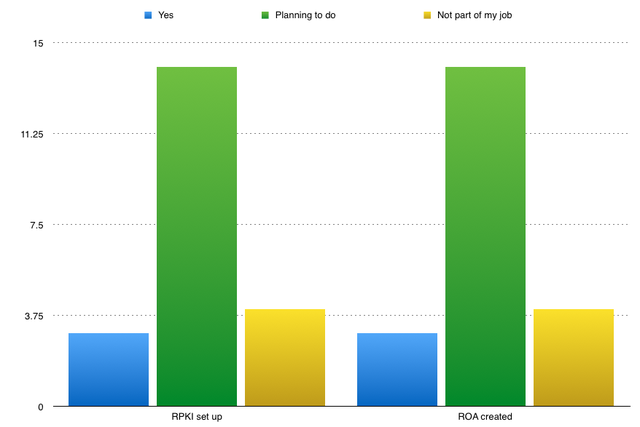
Meeting RIPE NCC staff in person
One question that we always ask all the participants in our training courses is how important it is for them to meet the RIPE NCC staff in person, since most of the communication between the RIPE NCC and the LIRs is done by e-mail. For 53,4% of the participants who took the survey, meeting the RIPE NCC staff in person is very important. For only 3,35%, it is not important (see Figure 6 below).
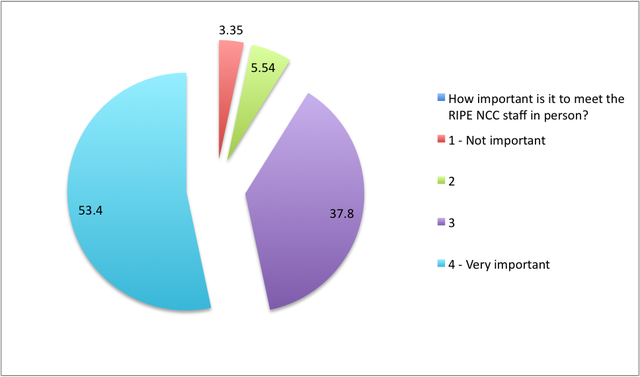
Webinars
In 2013, the RIPE NCC offered four different Webinar topics for LIRs, and we held 40 Webinar sessions. The topics offered were:
- Introduction to the RIPE Database
- RIPE Database - Advanced topics
- Resource Certification (RPKI)
- IPv6 in the RIPE Database
Overall, the participants are very satisfied with the Webinar experience.
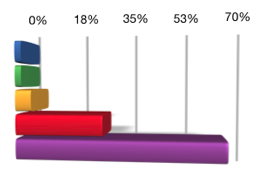
For the participants, the advantages of this type of learning experience are the "quick and precise learning" , a "short and interesting presentation" and the fact that they can "learn small topics of interest at the moment" .
The participants also mentioned the fact that it saves travel costs and that they get the chance "to improve my knowledge of the RIPE NCC's services without leaving my workplace" . It is a "very useful way to pick up knowledge without having to do the research personally" . Therefore, it doesn't only save on travel costs, but it also saves our members' time.
The fact that the Webinars are recorded and the recording is sent to the participants is mentioned as beneficial. Another positive aspect of the Webinars is that they are live and interactive: "one can ask questions! :)" .
The RIPE NCC Webinars have been very well accepted by our members, and, based on their suggestions in the surveys, we added two new Webinar topics in 2014:
- Webinar for new LIRs
- IPv6 Addressing Plan Webinar.
We would like to thank all our course and Webinar participants for their feedback.

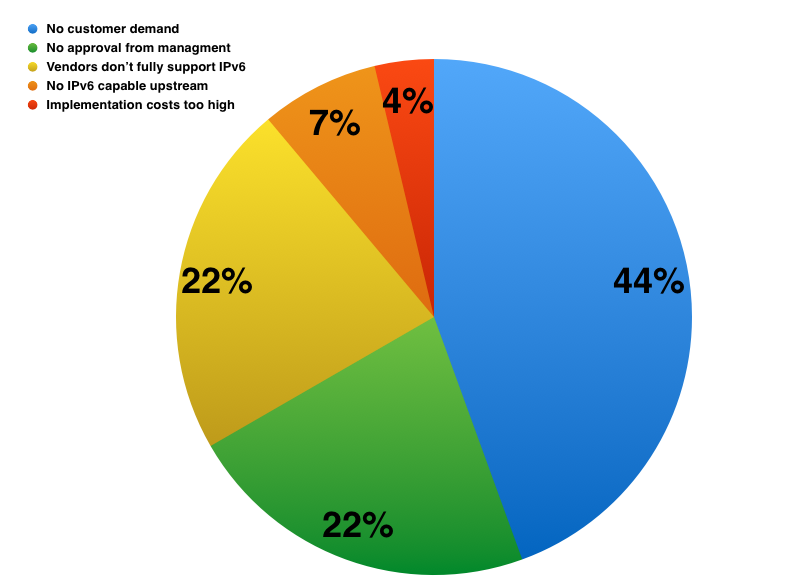
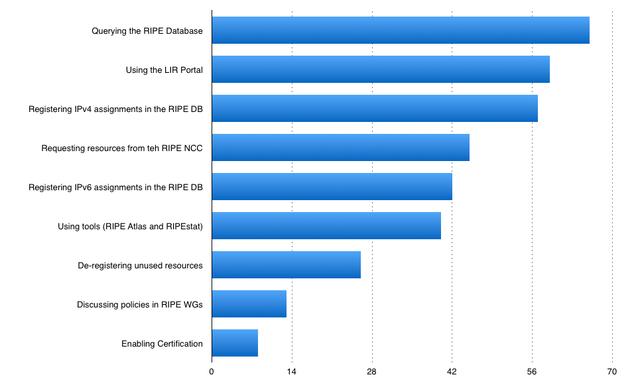
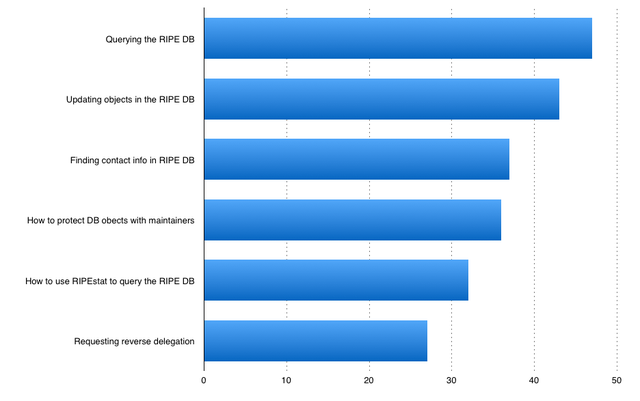
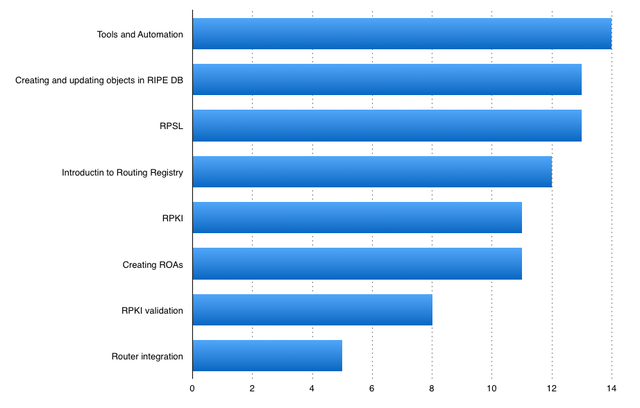
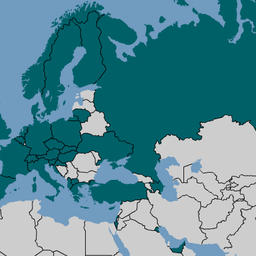


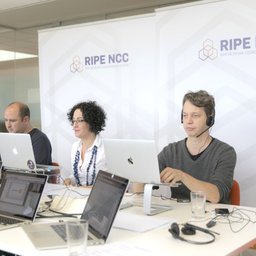

Comments 0
The comments section is closed for articles published more than a year ago. If you'd like to inform us of any issues, please contact us.